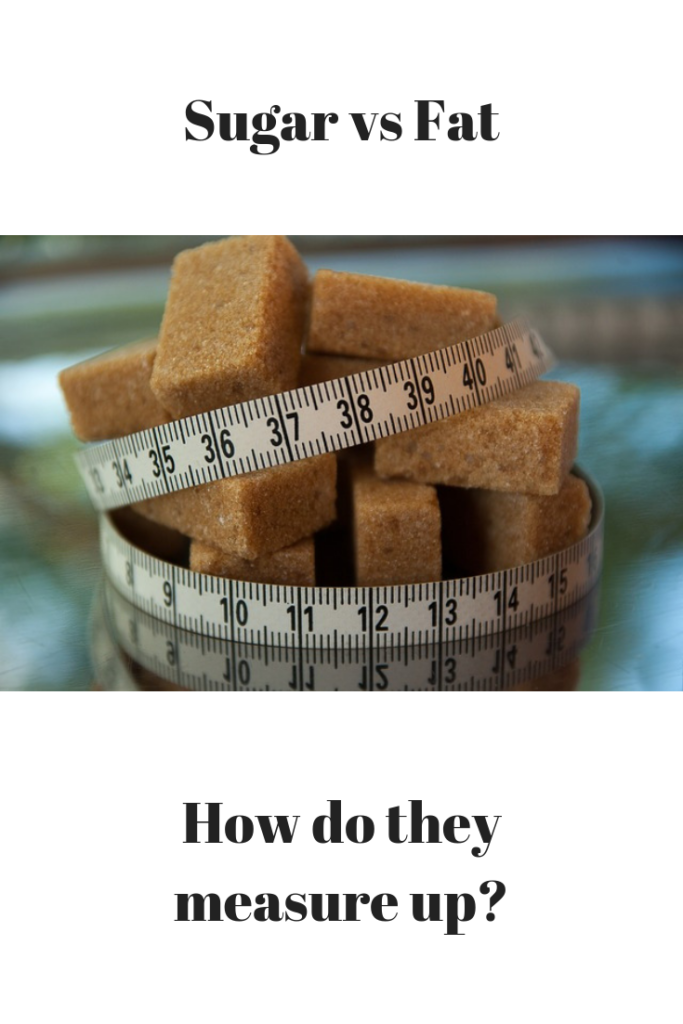
In North America and other first world nations fat has been branded a bad guy. A disease causing, obesity making bad guy.Actual research shows a drastically different picture. Warning I'm actually verbose in this piece. If you are pressed for time just watch the 7 minute video. If you want more detail and references, keep reading.
Sugar vs Fat
Let's dive into the history of how fat became the bad guy. Now if you are new to learning about how industry will fund "research" with pre-drawn conclusions (aka profit driven, corporate fiction) then finding out the sugar industry created an institution called the "Sugar Research Foundation" (here after referred to as the Foundation or SRF) might be a surprise. This Foundation's job was to make a literature review of studies done on sugar and heart disease. They suggested that all the studies were flawed and that low fat was actually the solution to the rising disease rates.The literature review was published in The New England Journal of Medicine with no disclosure of the fact that the sugar industry had actually funded the review.Unfortunately for our collective health the sugar industry has continued to throw money around to influence the debate over sugar vs fat.If it isn't clear to the reader why this is a problem please allow me to point out the conflict of interest. By funding any type of research that only promotes their product but never condemns the product they throw mud into the scientific waters, making it harder to have an accurate picture on anything industry researches. A recent paper titled "Sugar Industry and Coronary Heart Disease Research" goes through internal industry documents which brings the historical perspective into light. In 1954 the SRF president saw a business opportunity and said as much in a speech. If Americans started eating a lower fat diet then more sugar would be put in the food to make up for the deficit in flavour. This boosted sales across the nation by a full third, that is a huge amount of profit. However by the 60's studies started showing a consistent issue with sugar as a major source of calories. In 1967 the previously mentioned review was published. The studies examined in the review were hand selected by the SRF. When the review was finally published the SRF VP Hickson wrote to one of the researchers "Let me assure you this is quite what we had in mind and we look forward to its appearance in print..." At this point you have a bit more context but I don't want to bore you with excess detail before actually comparing dietary effects of sugar or fat. The paper linked above goes into very high detail or you can read the article by NPR which is more detailed than I have been but a lighter read than the research paper.
To compare the effects we must understand how the body metabolizes fat and sugar. Both are significant sources of calories, however how each is broken down differs significantly.
Sugar comes in multiple forms, both refined and unrefined. There are also natural non-calorie sweeteners like stevia but they are not relevant to this article. Truly unrefined sugars can have medicinal effects provided they are still used in moderation (see citations at bottom). Refined sugars have no proven benefit and are what is most commonly consumed in North America. So what exactly is the difference between refined and unrefined? Minerals and enzymes. For example raw honey is packed with various enzymes and many other factors that haven't been recorded yet. Pasteurized honey doesn't have these because the application of heat destroys them. Raw cane sugar is loaded with minerals as is dark maple syrup. White table sugar is just sugar with no minerals or enzymes left, those all went into the molasses that is separated from the raw product. For the human body to use any refined carbohydrate like sugar, we use up large quantities of minerals, magnesium in particular is depleted at a 6-1 ratio. Any excess calories from refined carbs gets converted and stored as fat on our bodies. When minerals are regularly depleted in the body our immune systems end up in a state of chronic inflammation, the disease effects of chronic inflammation can take a long time to show up and I'll be covering this in a future article. The short version for now is that chronic inflammation is very bad.
The reason our body depletes so many minerals to digest sugars is due to the fact that the molecular bonds of sugar molecules are very strong so once the sugars enter the intestines we must break those molecular bonds to absorb those calories. We have specialized enzymes in our gut just to break those molecules apart but it is an energy intensive process to break them down and use them. Once in the blood stream insulin will spike up to allocate where the sugars are used or stored. Over a long enough period the constant insulin spikes lower sensitivity to insulin which can lead to prediabetes and diabetes.
When we digest fats we don't break them down until they hit the intestines just like sugars. When the stomach drains, our liver releases bile salts to coat the tiny fat globules and breaks them down to be absorbed. On average most of us will only absorb roughly 50% of the fat we eat with the rest being excreted.When we absorb the fats we get an easy hit of calories but we also get essential fatty acids that we are not capable of making ourselves and it helps us absorb our vitamins and minerals more effectively. Additionally it is biologically impossible for our bodies to store the extra calories from fats as fat on our bodies. Insulin does not get activated because fat does not spike blood sugar levels.In order to absorb fat effectively we need to make sure that we release bile effectively. Believe it or not this is relatively easy, bitter herbs increase bile production. No seriously, it's that easy.
Citations:
- Antioxidant activity in sugarcane juice and its protective role against radiation induced DNA damage
- Anticancer effects of maple syrup phenolics and extracts on proliferation, apoptosis, and cell cycle arrest of human colon cells
- Honey as topical prophylaxis against radiochemotherapy-induced mucositis in head and neck cancer
- High fructose consumption combined with low dietary magnesium intake may increase the incidence of the metabolic syndrome by inducing inflammation.
- Prediabetes & Insulin Resistance
- Biochemistry. 5th edition. Chapter 22 Fatty Acid Metabolism
- Digestive stimulant action of spices : A myth or reality?
Image is from pixabay and edited in canva by me

